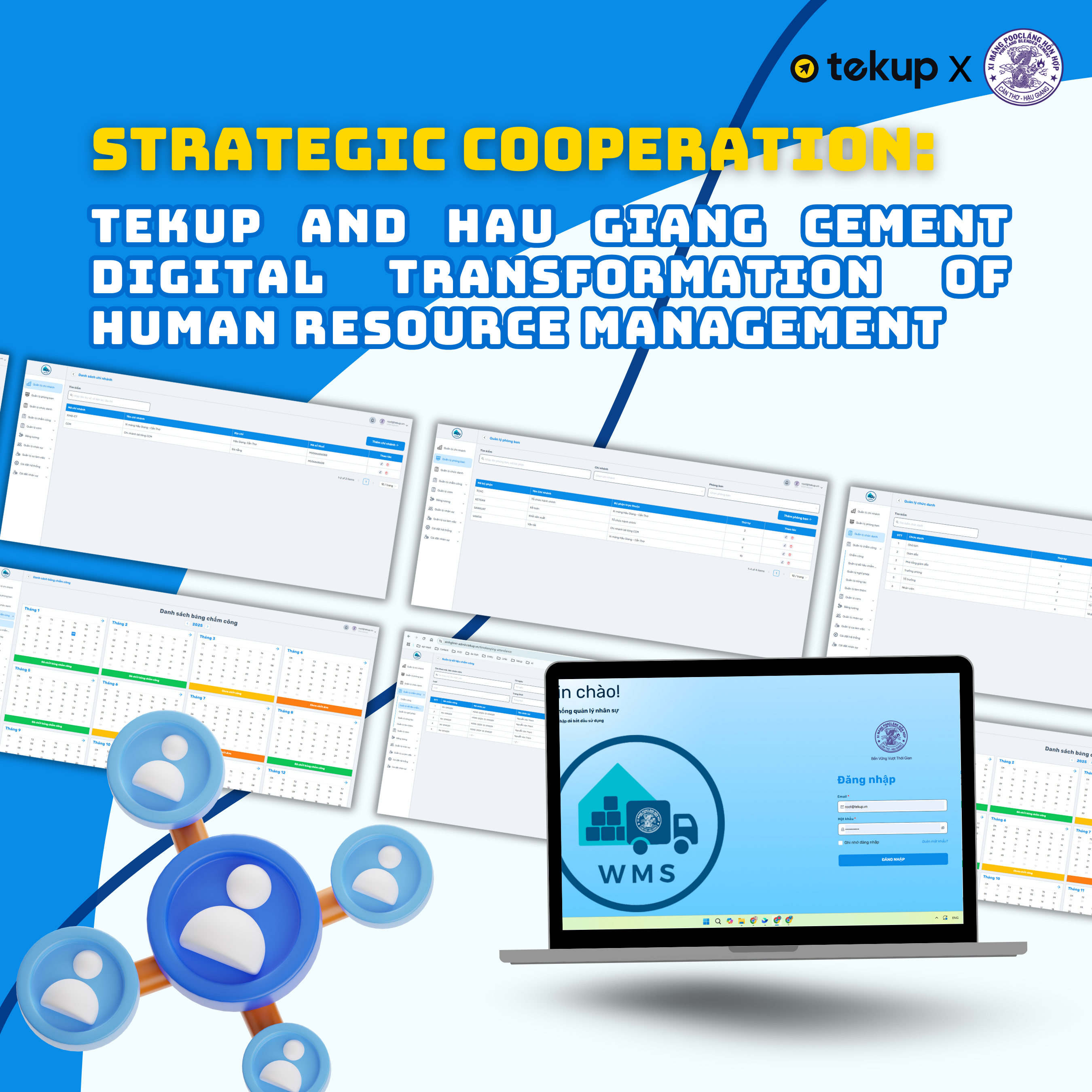
In the information technology industry, frontend plays a crucial role in creating the user interface and experience of digital products. So, what is a frontend developer, and what knowledge should one acquire to become an expert in this field? Let’s explore the tips for conquering the role of a frontend developer with Tekup.
What is a Frontend Developer?
A frontend developer is responsible for building and maintaining the user interface of web applications, ensuring the best possible user experience for the end user. Their tasks include:
- Converting designs from Photoshop, Figma, or Adobe XD into HTML, CSS, and JavaScript code.
- Optimizing the interface to ensure fast page loading speed and compatibility across devices.
- Ensuring interactivity through integrating frameworks or libraries such as React, Vue.js, or Angular.
A Frontend Developer serves as the “bridge” between the design world and the backend.
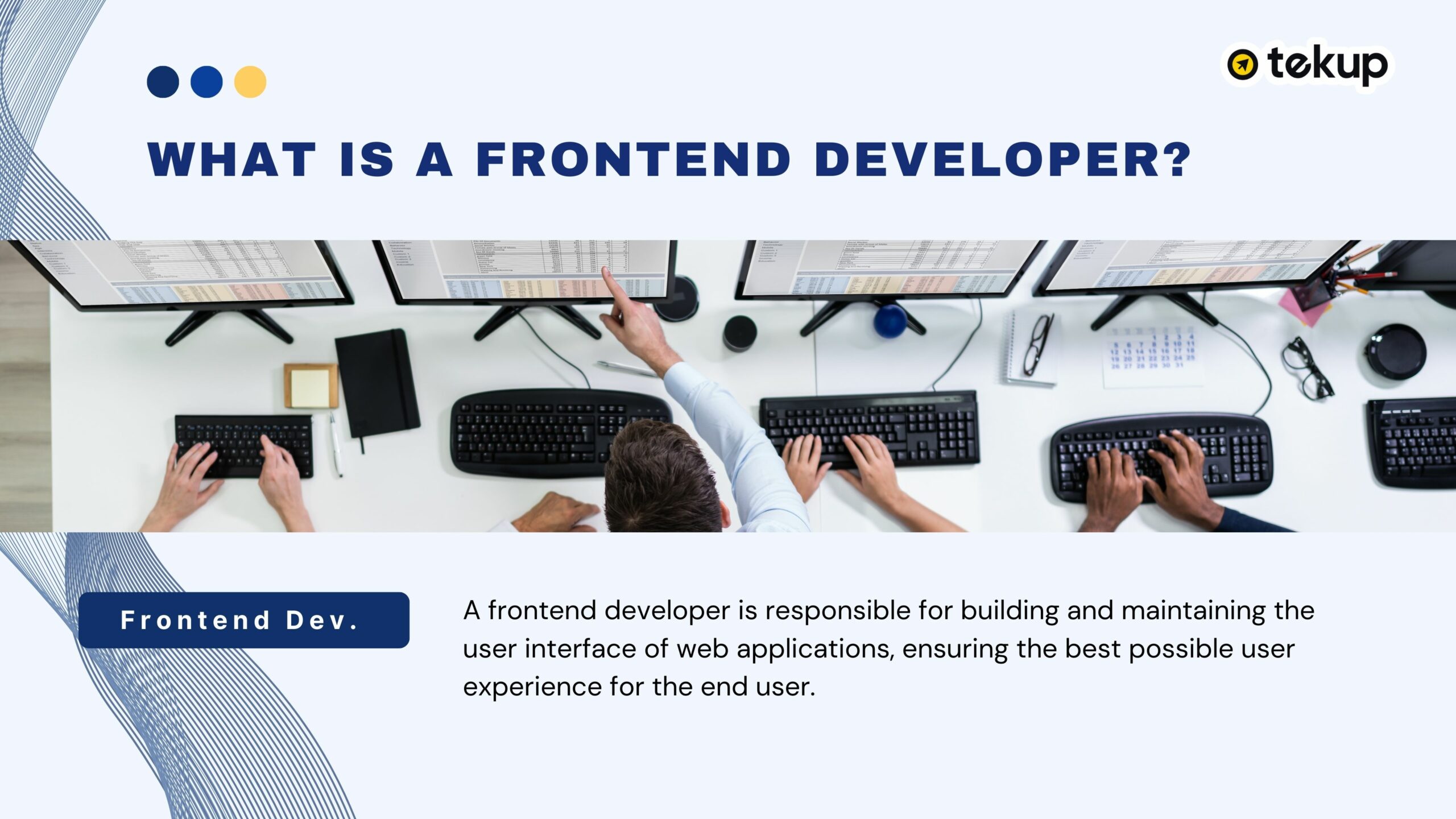
Top 7 Key Knowledge Areas to Master When Conquering Frontend
HTML and CSS – Essential Foundations
HTML and CSS are the two fundamental elements required to build a web interface. These are the basic skills every frontend developer must master:
- HTML
- Page Structure: HTML is the language used to create components on a webpage, such as headings, paragraphs, lists, and images.
- Semantic Tags: Using semantic tags (like <header>, <footer>, <article>, <section>) not only makes the code clearer but also helps with SEO optimization.
- CSS
- Styling: CSS is used to style elements such as colors, fonts, sizes, and layouts.
- Modern Techniques: Learn how to use Flexbox and CSS Grid to arrange elements. These tools help design interfaces more easily and flexibly.
- Responsive Design: Get familiar with Media Queries to ensure the website displays well on all devices.
JavaScript – Core Programming Language
JavaScript makes your website interactive and dynamic. It is one of the most important skills:
- Understanding ES6+: Familiarize yourself with new features like arrow functions, destructuring, and template literals to write more efficient code.
- DOM Manipulation: Learn how to access and change HTML elements through the Document Object Model (DOM).
- Event Handling: Learn how to handle events like clicks, hovers, or data input.
- Fetch API: Get to know how to fetch data from a server via an API and display it in the interface.
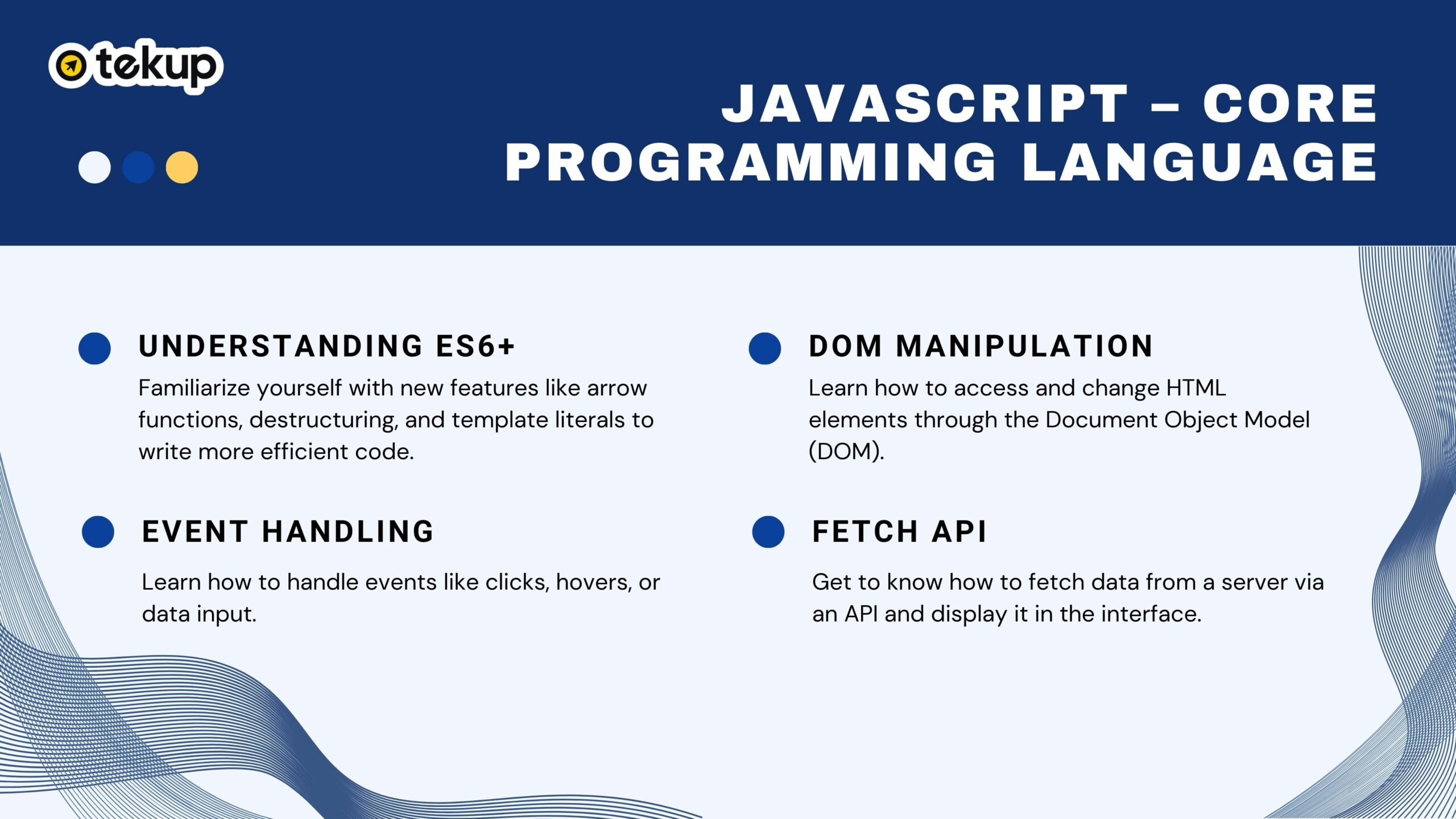
Frameworks and Libraries
Modern frameworks and libraries save you time and optimize the development process:
- React.js: A popular JavaScript library for building dynamic, component-based interfaces.
- Vue.js and Angular: Two other powerful frameworks widely used in large-scale projects.
- CSS Libraries: Tools like Bootstrap or Tailwind CSS help you easily create visually appealing interfaces without writing extensive CSS from scratch.
Responsive Design and Mobile-First
With the rapid development of mobile devices, designing interfaces that are compatible with various screen sizes is crucial:
- Media Queries: Use in CSS to apply different styles based on screen size.
- Mobile-First Philosophy: Start designing for mobile devices first, then progressively enhance the design for larger screens.
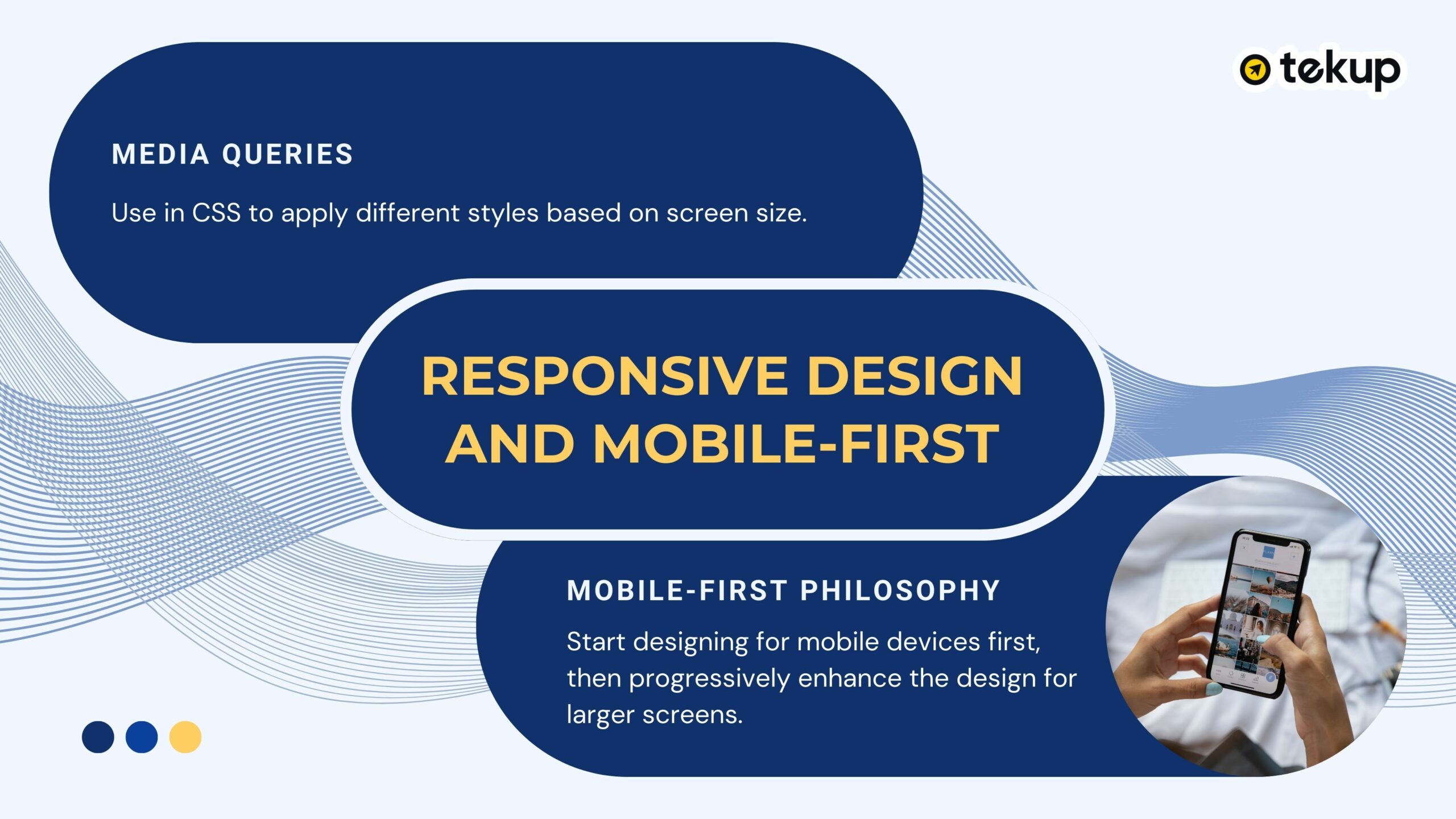
Development Tools (DevTools)
Using development tools can make your work more efficient:
- Chrome DevTools: A powerful tool that allows you to inspect and debug HTML, CSS, and JavaScript directly in the browser.
- Git/GitHub: Manage source code and collaborate efficiently using version control systems.
Website Performance
Performance is a key factor in user experience and directly impacts SEO:
- Optimizing Resources: Minify or compress CSS and JavaScript files to reduce their size.
- Lazy-Loading: Only load images or resources when needed to speed up page loading times.
- Performance Testing: Use tools like Lighthouse or WebPageTest to evaluate and improve website performance.
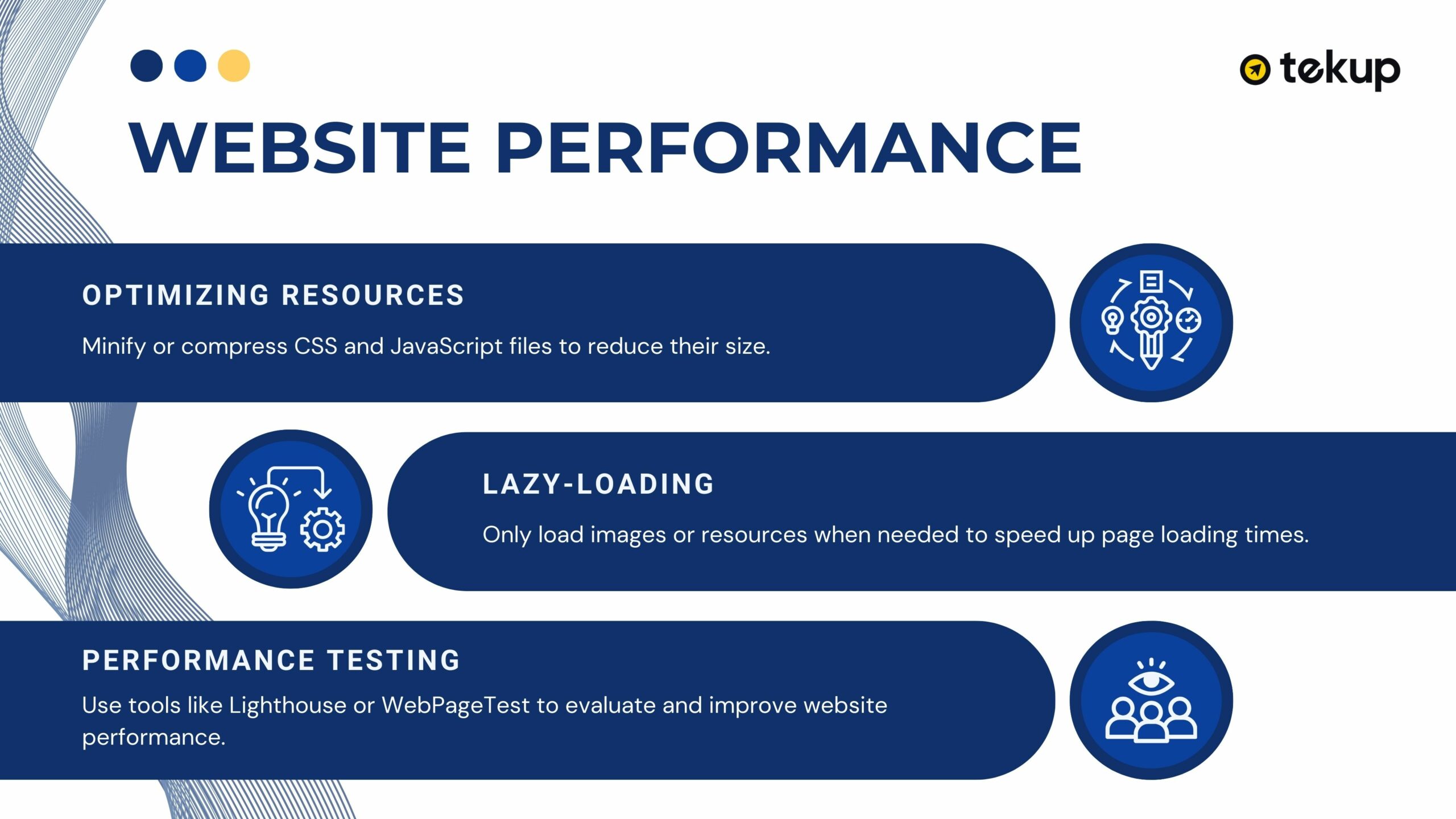
UX/UI Knowledge
Basic knowledge of UX/UI helps you collaborate better with designers and create products that meet user needs:
- Usability: Ensure the interface is user-friendly and intuitive.
- Design Principles: Master rules of color, spacing, and alignment to create a harmonious and appealing layout.
Frontend development is a blend of technical skills and creativity. With these foundational knowledge areas, you are well-equipped to begin your journey as a professional frontend developer!
Tips to Conquer the Frontend Developer Role
Tekup always encourages its members to continuously learn and improve their skills. Here are some tips to help you quickly conquer this role:
- Build Real Projects: Participate in internal or personal projects to apply theory into practice.
- Learn from the Community: Join forums like Stack Overflow, GitHub, or frontend-focused groups to expand your knowledge.
- Keep Up with Trends: Frontend development evolves rapidly, so stay updated by following tech blogs and attending seminars.
- Find a Mentor: Learn from experienced individuals within Tekup to accelerate your growth.
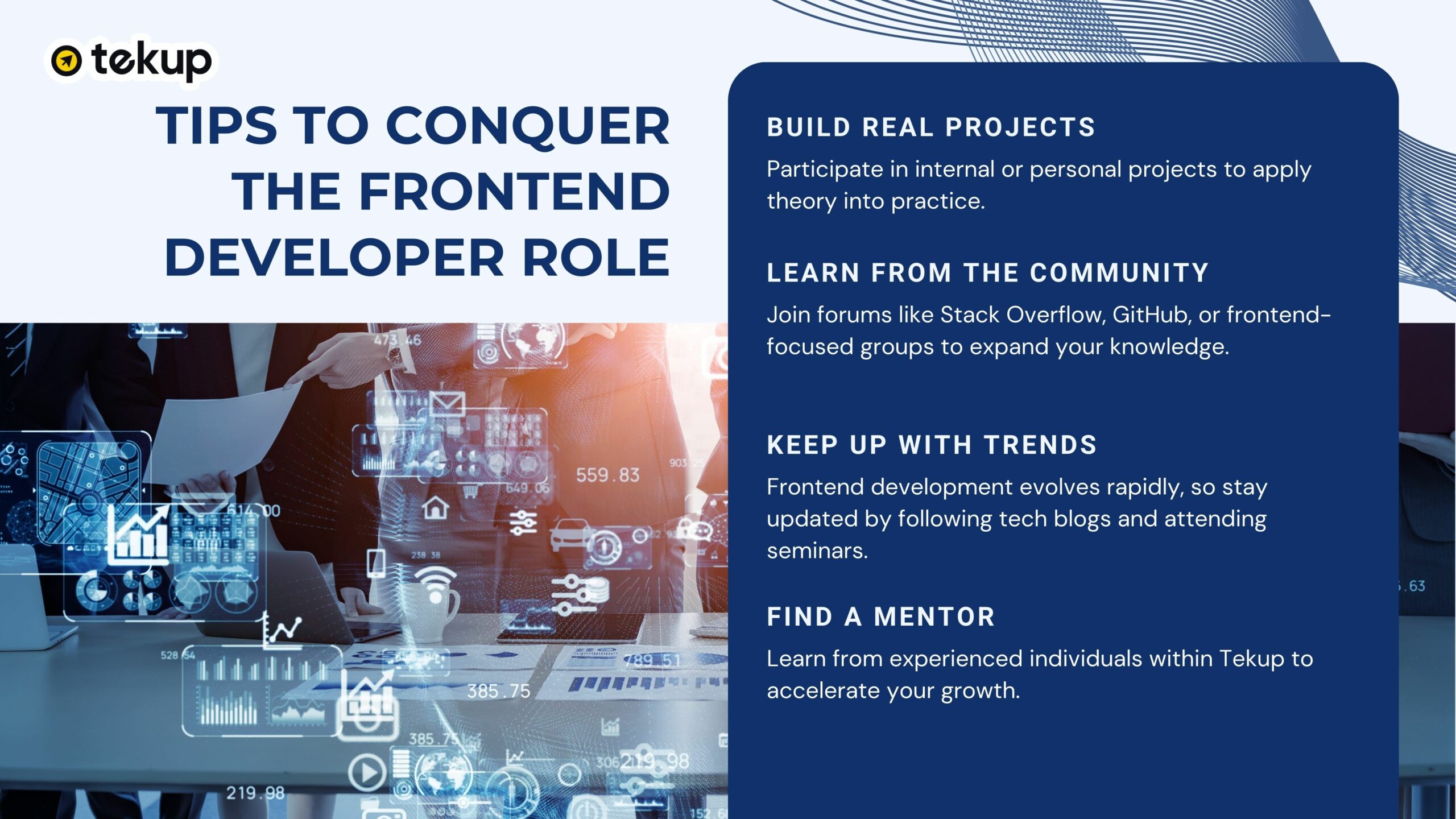
Conclusion
Conquering frontend development requires not only technical knowledge but also persistence and passion. With the 7 core knowledge areas and support from the Tekup community, you can definitely become a professional frontend developer.
Start your journey today, as opportunities in the frontend industry are broader than ever!


